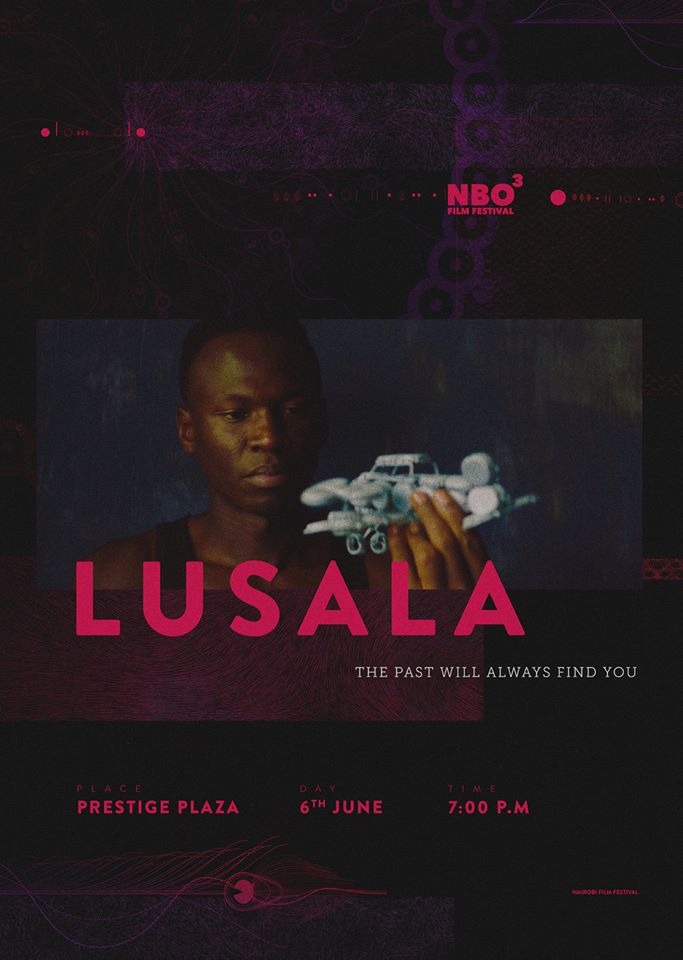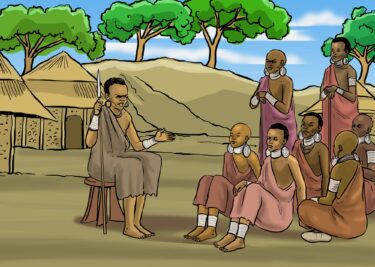NBO Film Festival

The human experience isn’t complete without situations, circumstances or events that bring us together. One notable experience that sparks community is when we convene at the movie theatre for those 90 or so minutes. Captivated by images in motion and drawn further in by the top quality sound, it’s no surprise that once the movie is over, all we want to do is talk about it, or rave about it on social media. But that’s just one experience. Imagine being part of a film festival where different Kenyan (and African, and Afro South American, and Caribbean) films are showcased back to back? Just imagine.
2016 feels like a lifetime ago for film director Mbithi Masya. A lifetime ago but with bragging rights that he will be remembered for even in the years to come. That year, following his tireless efforts, his film Kati Kati premiered at the Toronto Film Festival. The debut was followed by a major win: the “Discovery Award”, where Kati Kati was the selected winner out of a pool of hundreds of films. Like we said, he had bragging rights for his debut, and what followed was Mbithi moving from country to country, smiling as his ‘baby’ was screened at various international film festivals. Despite this grand milestone, one thing felt odd – the fact that none of the festivals was in Nairobi, his hometown.
The graphic designer turned filmmaker turned to his friend and creative director, Sheba Hirst and expressed his growing disappointment. They both agreed that Nairobi, the vibrant creative capital of the East Africa region, lacked a space for filmmakers, actors and film enthusiasts. With the optimism of a change-maker, Sheba challenged Mbithi to begin the creation process of a film festival and together they began the journey into what would become the NBO (Nairobi) Film Festival.
What came next was scrolling through their phonebooks and mailing lists, specifically looking for Kenyan filmmakers who had films that met specific standards. The two spent time watching films specifically trying to identify those that would take viewers on an emotional journey or advance their understandings of the world. The picture quality was also of great importance as well as the names of upcoming filmmakers with recently released films.
Next came identifying the location. Prestige Plaza Shopping Mall’s cinemas seemed ideal based on location and the agreement on ticket costs. As Mbithi and Sheba continued to burn the midnight oil in ensuring the success of their production, they remained adamant on a few things. One being that they were intentional about introducing and reminding Kenyan audiences that there’s more ways beyond the traditional ones to tell stories.
In the first half of 2017, the seed became fruit, and the first edition of the NBO Film Festival was held at Prestige Plaza, welcoming filmmakers, directors, actors and script writers. The excitement among this selected group of individuals went beyond the confines of the mall, and slowly, other people (film enthusiasts, lovers of stories and those seeking new experiences) gained an interest in the festival. This in turn excited the dynamic duo and they soon after undertook a more arranged process of planning for the next edition of the festival.
Surely enough, in 2018, between 27th March and 1st April, the NBO Film Festival piqued the interest of a larger audience. This time, the festival included films beyond Kenya, giving a spotlight to filmmakers from around the continent. The three sold-out films, however, were all Kenyan. Supa Modo was the first, directed by Likarion Wainaina. Disconnect by Tosh Gitonga, and Philipa Ndisi-Herrman’s outstanding documentary New Moon. It went without saying that Kenyans love films and were (and continue to be) committed to supporting local productions.
Last year, for the third edition, the NBO Film Festival team pulled all the stops to getting Nairobi-based Kenyans and non-Kenyans to attend the festival, and as always, there was a Kenyan film that was not worth missing. Mugambi Nthiga’s film, Lusala, was one of the most sought after films and didn’t just sell out, rather, the demand was so high that the film continued screening on select days after the Film Festival had ended. In addition to the diverse range of African-directed films, there were films by film directors from Afro South America and the Caribbean.
The NBO Film Festival has garnered momentum in the three years since its inception. The festival and the duo behind its success was featured in the screen edition of the Cannes Magazine as one of the festivals around the world to watch out for. Additionally, the Rotterdam Film Festival reached out to Mbithi and Sheba, requesting them to be the content scouts for films from Africa. It didn’t stop there. The two were also invited to the Durban Film Market to watch other films from Africa and beyond, and this allowed them to establish links with potential partners and collaborators.
Our #KeFilms have birthed ideas, and this expanding film festival is evidence of that. We are excited for what Mbithi, Sheba and their growing team have in store for us this year, and we hope you and your friends will find time to watch a film or five and see the importance of audio-visual storytelling in our human experience.






